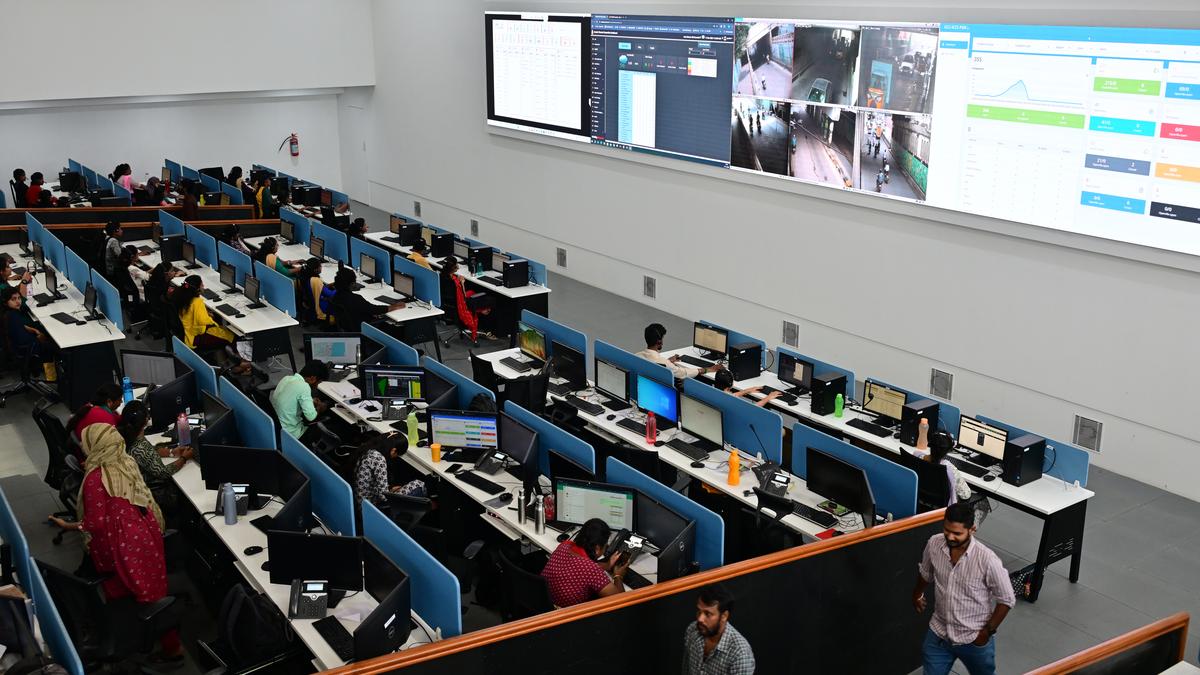
Advanced technology helped create safe environment for women in 93 smart cities: Study
The Hindu
Study by IIM Bangalore reveals smart cities in India enhance safety for women with CCTV cameras and emergency call boxes.
A safe urban environment for women has been created across 93 smart cities in the country with the installation of over 59,802 CCTV cameras and emergency call boxes, according to a study by the Indian Institute of Management, Bangalore.
Cities also installed real-time monitoring systems through Integrated Command and Control Centre (ICCCs), integration of which with police operations has enhanced evidence-based policing nationwide, the report said. ICCC the operational hub for smart city, handling day-to-day exceptions and disasters.
Also read: Women safety | NHRC emphasizes strengthening of the implementation of existing laws
The national level study has focused on smart cities of Chennai (Tamil Nadu), Nagpur (Maharashtra), and Tumakuru (Karnataka) for detailed primary impact assessment.
While Chennai and Tumakuru leveraged advanced monitoring systems, integrating safety cameras with ICCCs to assist law enforcement in gathering critical evidence for resolving crimes efficiently, Nagpur reported a 14% decline in overall crime rates post-implementation of surveillance measures.
The implementation of smart surveillance systems has reduced instances of harassment, assault and other crimes in areas with robust safety measures. Women in these three cities reported increased confidence in assessing public spaces, it said.
The study was carried out by the Ministry of Housing and Urban Development under SAAR - Sameeksha series of Smart Cities Mission (SCM) launched in November 2023. A total of 50 national level impact assessment studies were carried out on Indian smart cities on various themes by twenty-nine (29) premier institutions of India, which includes - six IIMs, eight IITs, three SPAs, and 12 specialised research institutes. The smart cities Mission offered it data and facilitated on-ground site visits to these institutions, to document the learnings which could be bedrock for future urban development policies

In the syndicate meeting on December 20, 2024, Peer Jhad Fahimuddin, a member, objected to an event of special lectures by resource persons and experts from Delhi and other States organised by the Kannada Department on December 15, 2024 under the banner of the university without inviting any statuary officer, syndicate or Academic Council members.










